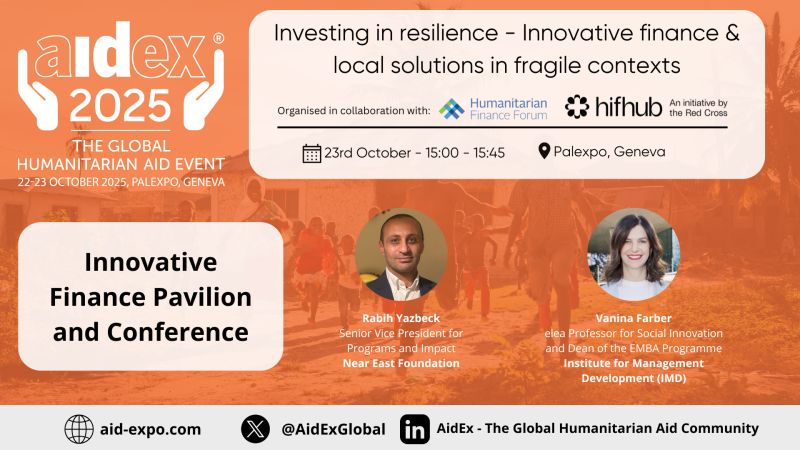In conjunction with Near East Foundation (NEF)’s participation at AidEx Geneva (October 22-23, 2025), NEF is launching a new paper, Financing Enterprise & Self-Reliance in Fragile Contexts: Evidence, Design, and Scale. The study highlights our experience bridging the access-to-finance gap and improving economic resilience for micro, small, and medium enterprises through “hyperlocal” community-based solutions. It presents the impacts of NEF’s recent programming that offers holistic non-financial and financial support.
NEF’s revolving credit funds in Sudan, South Sudan, Syria, and Mali demonstrate how innovative finance mechanisms can advance the localization agenda in fragile settings while retaining and recycling capital at the community level.
In Sudan, 21 community-managed revolving funds have disbursed more than 4,500 loans to women, youth, and displaced people traditionally excluded from formal finance. This has led to a 44% increase in household income and strengthened women’s decision-making power over resources. In South Sudan, similar locally governed revolving credit associations have reduced poverty among participants from 99% to 32%, while improving household food security, agricultural diversification, and asset accumulation.
The approach has proven scalable and adaptable, with comparable results in Syria, where over 5,000 enterprises supported through a $7 million revolving fund achieved a 73.6% average revenue increase; and in Mali, where community-based financing and cooperative mechanisms mobilised $1 million in credit for farmers and agripreneurs over the past 24 months, generating $1.3 million in revenues and measurable gains in food security and resilience.
Unlike traditional aid, these regenerative financial structures embed local capital circulation, inclusive governance, and outcome-driven investment, creating long-term financing ecosystems that reduce aid dependency. They can also be linked with blended finance instruments, as in Syria; with decentralised climate funds, as in Mali; and with impact bonds, as in Jordan.
This model offers a practical, evidence-based pathway to align innovative finance with localisation, resilience, and sustainability—bridging the humanitarian-development-peace nexus while mobilising global private capital and elevating local enterprise and cooperative leadership as central actors in crisis response and long-term development.
Through an AidEx case study session on October 23rd, NEF’s Senior Vice President for Programs and Impact, Rabih Yazbeck, will develop further on this learning, highlighting the success and replication potential of revolving credit funds in reducing poverty and improving household revenues and food security in these contexts.

Throughout the AidEx conference, NEF will also host a booth at the Innovative Finance pavilion and will be launching calls for diverse partnerships to collaborate in some of the most challenging environments in Syria, Mali and Sudan.